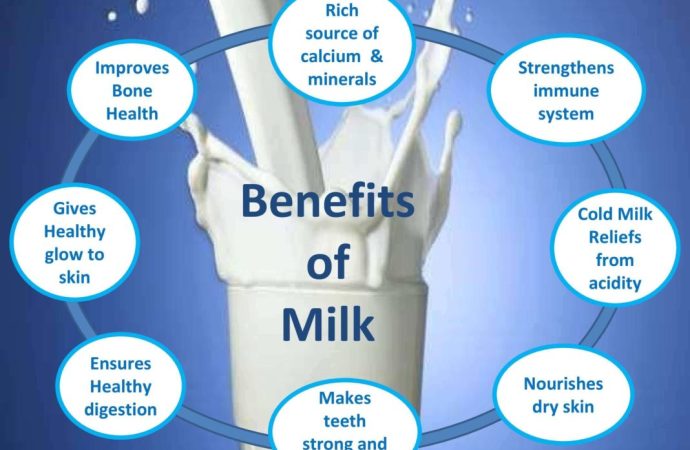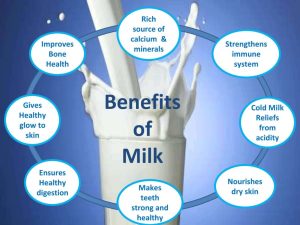Plant-based milk alternatives have become increasingly popular due to their versatility, flavor, and potential health benefits. In this exploration, we will delve into the health advantages of three popular plant-based milk options: oat milk, coconut milk, and cashew milk. Understanding the unique attributes of these dairy-free alternatives can help you make informed choices that align
Plant-based milk alternatives have become increasingly popular due to their versatility, flavor, and potential health benefits. In this exploration, we will delve into the health advantages of three popular plant-based milk options: oat milk, coconut milk, and cashew milk. Understanding the unique attributes of these dairy-free alternatives can help you make informed choices that align with your dietary preferences and nutritional goals.
Oat Milk: A Heart-Healthy Option
Health Benefits:
- Low in Saturated Fat: Oat milk is naturally low in saturated fat, making it heart-healthy and suitable for those looking to reduce their saturated fat intake.
- Beta-Glucans: Oats contain beta-glucans, soluble fibers known to reduce cholesterol levels, making oat milk a potential choice for heart health.
- Vitamin and Mineral Enrichment: Many commercial brands fortify oat milk with vitamins and minerals, such as calcium and vitamin D, enhancing its nutritional profile.
- Lactose-Free: Oat milk is naturally lactose-free, a suitable option for those with lactose intolerance.
Coconut Milk: A Creamy and Rich Choice
Health Benefits:
- Rich Texture: Coconut milk has a creamy and rich texture, making it a popular choice for curries, soups, and desserts.
- Medium-Chain Triglycerides (MCTs): Coconut milk contains MCTs, a type of healthy fat that may aid in weight management and cognitive function.
- Lactose-Free: Like other plant-based options, coconut milk is naturally lactose-free.
- Manganese: Coconut milk is a source of manganese, an essential mineral for various bodily functions, including bone health and metabolism.
https://myhealthonly.net/wp-content/uploads/2019/12/Benefits-of-milk-1068×801.jpg?v=1575395139
Cashew Milk: Nutrient-Rich and Creamy
Health Benefits:
- Creamy Texture: Cashew milk is known for its creamy texture, making it a versatile addition to recipes and beverages.
- Low in Calories: Unsweetened cashew milk is typically low in calories, making it suitable for those seeking to manage their calorie intake.
- Dietary Fiber: Cashew milk contains dietary fiber, which supports digestive health.
- Vitamin E: Cashew milk is a source of vitamin E, an antioxidant that helps protect cells from damage.
Choosing the Right Plant-Based Milk
The choice of plant-based milk depends on your dietary preferences and nutritional goals:
- Oat Milk: Choose oat milk if you are looking for a heart-healthy option with potential cholesterol-lowering benefits. Oat milk’s mild flavor makes it a versatile choice for coffee, cereal, and baking.
- Coconut Milk: Opt for coconut milk if you enjoy its rich and creamy texture and appreciate the potential benefits of MCTs. It is well-suited for cooking and adds a distinct flavor to dishes.
- Cashew Milk: Select cashew milk if you prefer a creamy texture and are seeking a low-calorie option. It’s great for adding a velvety consistency to smoothies and recipes.
https://www.organicfacts.net/wp-content/uploads/typesofmilk.jpg
Conclusion
Plant-based milk alternatives like oat milk, coconut milk, and cashew milk offer diverse health advantages, making them suitable choices for various dietary preferences and nutritional needs. Oat milk’s heart-healthy properties and cholesterol-lowering potential are appealing, while coconut milk’s rich texture and potential cognitive benefits from MCTs add to its allure. Cashew milk’s creaminess and low-calorie content make it an excellent choice for those watching their calorie intake. When selecting a plant-based milk, consider your taste preferences, dietary restrictions, and specific health objectives. Keep in mind that nutrient content may vary between brands, so reading labels can help you make an informed choice. Incorporating these dairy-free alternatives into your diet can add variety and potential health benefits while catering to your unique nutritional goals.



















Leave a Comment
Your email address will not be published. Required fields are marked with *